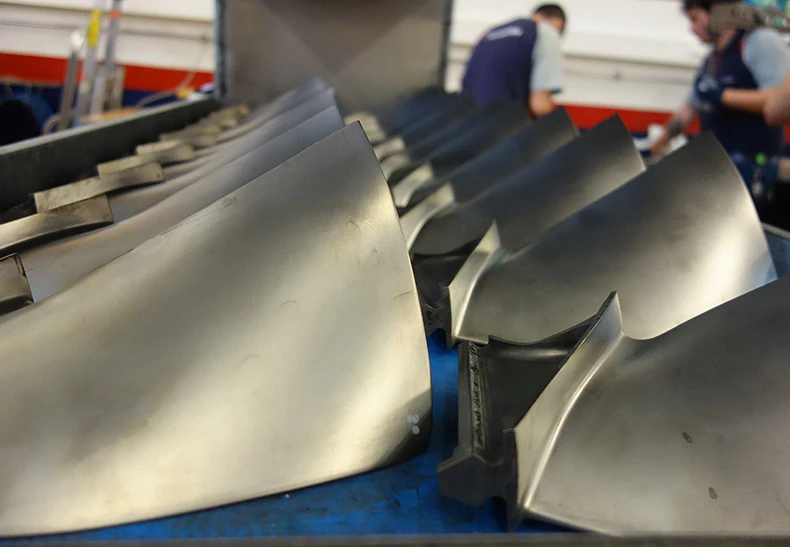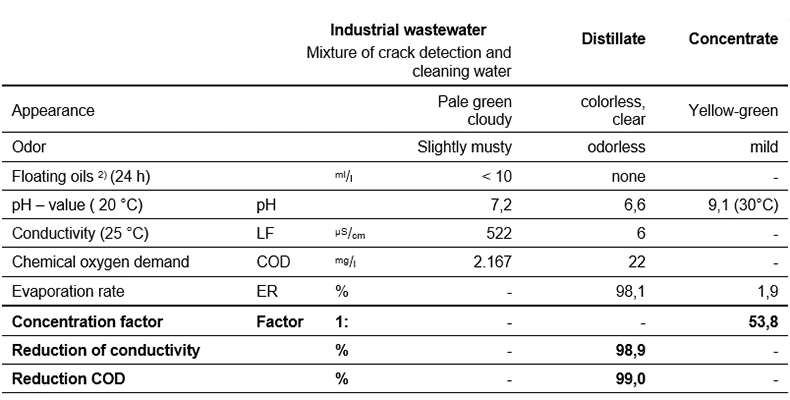Contact us
In the current crisis, every cent saved is worth its weight in gold for companies. The pandemic, with its high fixed costs, is hitting the aviation industry particularly hard. Leading aviation companies are already saving not just a few cents, but a quarter of a million euros through sustainable wastewater treatment with VACUDEST. Interested parties can find out exactly how this works in this article.
The topic of sustainability is currently gaining more and more importance due to the increasing environmental awareness in the industry. Especially in aviation, the focus is on an environmentally friendly, sustainable air traffic system. Here, the VACUDEST technology offers an intelligent solution that is both sustainable and economical: wastewater-free production.
Ecological sustainability means the conservation of natural resources, the increase of energy efficiency and the reduction of pollutant emissions. New demands are also being placed on maintenance service providers from the MRO industry (maintenance, repair, overhauling). They are responsible for the maintenance, repair and overhaul of components and accompany an aircraft over the longest period of its life cycle.
The use of a VACUDEST vacuum distillation system makes an important contribution to meeting these new requirements. This technology enables a recirculation of the treated process water and is also enormously efficient due to cost savings in various areas.
A look into the production illustrates these advantages: During component cleaning, galvanic coating processes and crack detection, a wide variety of process waters are produced in the aviation industry, which have to be disposed of at high costs. The VACUDEST vacuum distillation system can efficiently treat both individual streams and mixtures of these different process waters. The distillate can be recirculated and thus recycled in many application examples. This reduces the environmental impact enormously. Due to the drastic reduction of disposal costs, the annual savings potential is also very high.
By means of dye penetrant methods, surface defects in metallic materials can be detected very quickly on components. This method is mainly used for the inspection of welds and components in the maritime, aviation and automotive industries as well as in apparatus and container construction. A distinction is made between colored and fluorescent penetrant inspection. The fluorescent inspection, which is particularly common in the aviation industry for safety-relevant parts, is carried out under UV light with fluorescent penetrant. Defects such as cracks can thus be easily detected without the component being damaged or destroyed during the inspection. The increasing quality standards in the aviation industry require this type of material testing.

The principle of vacuum distillation is an excellent method for the treatment of wastewater containing oil. This also includes process water, such as crack detection, cleaning and degreasing water, which is produced in the aviation industry. In the past, vacuum evaporators were able to separate salts and heavy metals reliably, but over-distillating hydrocarbons and oil components caused problems. These impurities had to be laboriously separated by additional process steps.
The patented Clearcat technology reliably separates these organic contaminants while still in the plant and significantly improves the distillate quality - the distillate is crystal clear and oil-free. A very low hydrocarbon index can be guaranteed. The COD value (chemical oxygen demand) caused by oils, a measure of the organic pollution of the water, is reduced by up to 98 percent. This represents an improvement of 60 percent compared to single-stage distillation. In the process water analysis that follows, this reduction is even exceeded.

Physically, 99.9 percent of the heavy metals are separated, so that the discharge limits for heavy metals are reliably met. A good indication of the presence of salts is the conductivity. This was determined in the case study with only 6 µS/cm. The distillate is therefore salt-free. The other measured parameters also allow the distillate to be reused directly in the production process. Besides the low conductivity, the COD value is also greatly reduced. The almost pH-neutral distillate is therefore ideally suited for reuse in various production processes.
In this way, costs can be reduced by 98 percent: On the left, process water from aviation, in the middle the treated distillate by a VACUDEST system with Clearcat, on the right the minimized concentrate.
Vacuum distillation using VACUDEST is a sustainable and efficient solution for wastewater treatment in the aviation industry. The distillate meets the strict quality requirements of the aviation industry. Depending on the specific requirements of the customers, the distillate quality can be further optimized by using downstream technologies such as ion exchangers or UV treatment.
Author: Marius Straub, Sales Engineer H2O GmbH
You want to be part of our team and create the wastewater-free future with us?
We will tell you how!
Your contact is:
Bettina Böhringer
Human Resources
+49 7627 9239-201
career@h2o-de.com
You have questions on our VACUDEST systems?
Kindly contact us!
Your contact is:
Thomas Dotterweich
Senior Sales Engineer
+49 7627 9239-306
thomasm.dotterweich@h2o-de.com
You need consumables, spare parts or a maintenance date?
We will be pleased to assist you!
Your contact is:
Carles Fité
Technical Customer Support
+49 7627 9239-888
carles.fite@h2o-de.com